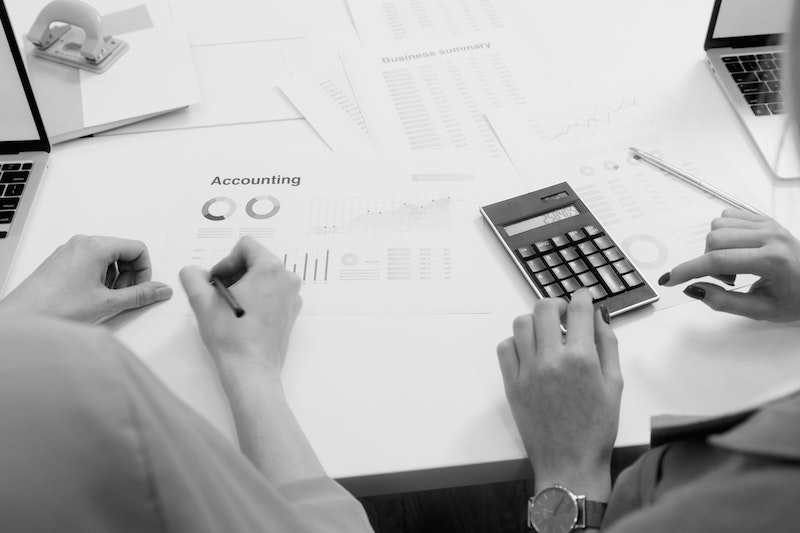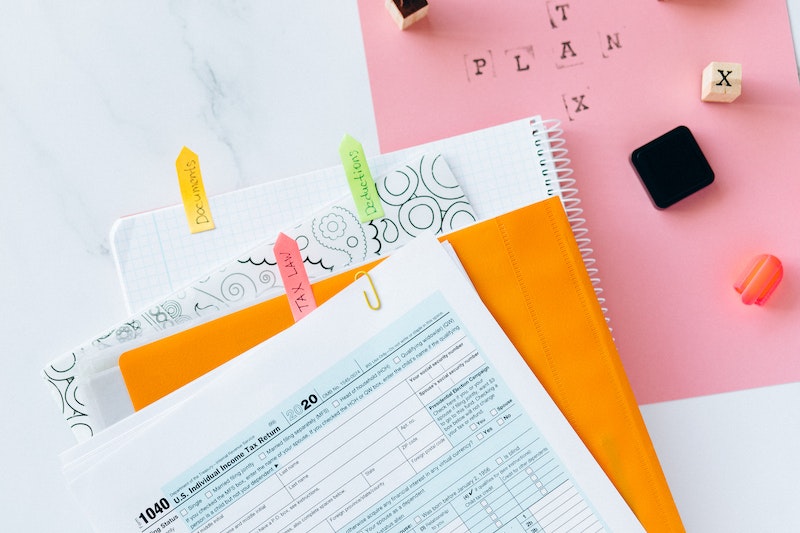Bookkeeper vs. CPA – What are the Main Differences?

Entrepreneurs know that finances are integral to running a company.
As soon as you start your business activities, you need money. Money to get your company off the ground, purchase materials and employ the right people.
And equally as important is recording each financial transaction so you can keep track of money going out and coming in.
However, most people don’t have a background in accounting and need to outsource this business function. The type of accountant you need will largely depend on what stage of growth your company is in.
In this article, we’ll discuss the main differences between a CPA (Certified Public Accountant) and a Bookkeeper. And help you decide which one is better suited to your business.
What is Bookkeeping?

For you to understand each professional better, we will first define Bookkeeping by answering the question: “What is Bookkeeping?”
Bookkeeping is an accounting process of tracking and recording the financial transactions of a business on a regular basis.
A Bookkeeper appointed in your organization would be responsible for the following:
- Recording daily sales transactions
- Reconciling bank accounts
- Posting transactions to the appropriate journals
- Generating business invoices
- Making payments on business accounts
- Recording bank deposits
- Preparing reports and supporting financial statements such as income statements
- Providing tax advice such as deductions and preparing tax returns
- Reconcile bank statements every month
Based on these journals and entries, financial records can be compiled and used for greater financial processes, including calculating tax liability and determining whether the business is profitable enough for continuity or investment.
In short, in order to apply for any loans, calculate tax liability and even discontinue the business activities, you would need this set of records as proof.
Further Reading: How to Automate Your Bookkeeping – An Actionable Guide

Who can qualify as a bookkeeper?
The minimum qualification for a bookkeeper is a high school diploma. Although you do not need a formal certification, a background in numbers or admin would be to your advantage.
However, even though formal post-school training is required, you should still hire a trained professional. Also, who you hire would depend on the size of the business and the type of business you run.
For the quality and accuracy of your business’s financial records, it is advisable to find an individual with at least a bookkeeping certificate or a licensed bookkeeper.
A licensed bookkeeper is a certified individual registered with either the American Institute of Professional Bookkeepers (AIPB) or the National Association of Certified Public Bookkeepers (NACPB). This licensing gives the bookkeeper credibility and a competitive advantage over other unlicensed bookkeepers.
Also, a licensed bookkeeper is required to engage in ongoing education in order to keep their registration. This way, you can rest assured that your accounts are in the hands of a capable individual.
Even though you might have a licensed bookkeeper within your organization, you still need an external party for further analysis of your financial records.
This is because a licensed bookkeeper is only qualified to maintain financial records. Further analysis should be done by a certified individual registered with the relevant accounting professional body, such as a Certified Public Accountant (CPA).

What is a Certified Public Accountant (CPA)?
A CPA is a licensed professional who attains their designation by completing a formal accounting qualification and undergoing training in accounting disciplines such as Tax, Auditing and Ethics.
To be accredited, they must write qualifying board examinations conducted by the American Institute of Certified Public Accountants (AICPA) and the National Association of State Boards of Accountancy (NASBA).
To keep their designation, CPAs are bound to undergo continuous training and education every 1 – 3 years to ensure adherence to prescribed policies by the board.
What is the role of a Certified Public Accountant (CPA)?
The role of a CPA in a business is to focus on the overall financial well-being of a business.
Both the organization and its stakeholders trust a CPA to give an objective opinion about the state of a business’s financial affairs. Their scope of work goes beyond bookkeeping and their duties involve:
- Business financial consulting
- Preparing for and conducting audits
- Analyzing financial data and statements
- Preparing and calculating business tax liability
- Interact with the Internal Revenue Service when necessary
- Providing financial planning advice
- Maintaining financial records to ensure adherence to financial regulations
- Financing opportunities
Because the work done by a bookkeeper does not cover the entire scope of the financial affairs of a business, it is important to have a CPA. They provide a much clearer understanding of what direction a company can take.
A CPA’s report and review of the business’s financial status can provide a detailed guide when there is a need for expansion and growth. Using budgets and financial risk management, they can provide a report detailing the room for growth.
These financial reports tell how much capital you need for additional activities and whether enough funds would be available for payroll and operating expenses. This would also give insight into whether additional business activities would be profitable.

In the position of a public company, a CPA’s role is to act as a neutral party between the business’s management and its stakeholders. A CPA would conduct audits and analyze financial statements to safeguard the business against risks such as fraud and mismanagement of funds.
Again, because management always needs to report on the company’s financial performance, it would be necessary to study whether what is reported on the financial statements is true. The CPA does this.
The response provided by the CPA concerning the financial affairs would determine if the business can have more capital investment from the shareholders or even request additional funding from other sources such as banks.
Further Reading: A CPA for small business – When should you get one?
What is a CPA’s role outside the business environment?
A CPA is also accountable to the government under which the business operates. Businesses are required by law to pay taxes and comply with a set of financial regulations.
CPAs study the company’s financial performance and help the business calculate its tax liability and what needs to be paid to or recovered from the government. The reason the CPA can only do this is that they are the neutral party to represent the business and give an objective opinion.
Again, a business’s management may overstate its expenses and understate its profits in order to pay less tax than it should. This is where the CPA features to protect both the government and its stakeholders and ensure compliance with the financial regulations.
In some instances, a business may not be performing well. It would need to be evaluated by a CPA to see whether they could be rescued from a financial crisis or need to cease business operations. The CPA’s reports will contain their analysis and suggest the best course of action.
What distinguishes a Bookkeeper from a CPA?

Let’s now summarize the differences between a CPA and a Bookkeeper:
- The level of education of a CPA is much higher and involves extensive training regulated by the accreditation board. Whereas a bookkeeper can only possess numerical skills or a high school diploma.
- The skills and requirements to become a CPA make them eligible for higher pay than a Bookkeeper.
- A CPA does not necessarily work with daily accounting transactions but focuses on the business’s long-term objectives by overseeing financial records maintained by a Bookkeeper.
- A bookkeeper’s responsibility is only towards the business and its customers, whereas a CPA’s responsibility goes well beyond the company by involving the shareholders and the government.
- Although this hardly happens because of how qualified a CPA is, a CPA can perform bookkeeping duties such as recording sales or payments. But a Bookkeeper cannot take over CPA functions due to regulations.
- The need for a Bookkeeper’s services may cease when business activities stop. Still, a CPA is needed to carry out all post-closure operations, such as valuation and unbundling of the business portfolio.
Conclusion
By now, you would have seen that these two functions can co-exist. A bookkeeper and CPA can record and manage your finances side-by-side.
A bookkeeper will create financial records needed by a CPA to make an informed choice about the overall financial position of a business.
Hiring a CPA contributes to the overall financial well-being of the business, and hiring a Bookkeeper ensures consistency in recording financial activities.
Depending on the size of your business, you may not need to have your records evaluated by a CPA. But the need for a Bookkeeper for the day-to-day financial functions is vital.
Innovative accounting software, such as Envoice’s Smart Extract, saves time by eliminating manual data entry. All the key information from your invoices and receipts is extracted instantly.
STAY ALWAYS TUNED
Subscribe to newsletter
STAY ALWAYS TUNED
Still not sure?
- Don’t spend time on manual work
- Streamline processes with AI
- Automate your invoice flow
- Integrate with the tools you rely on every day












